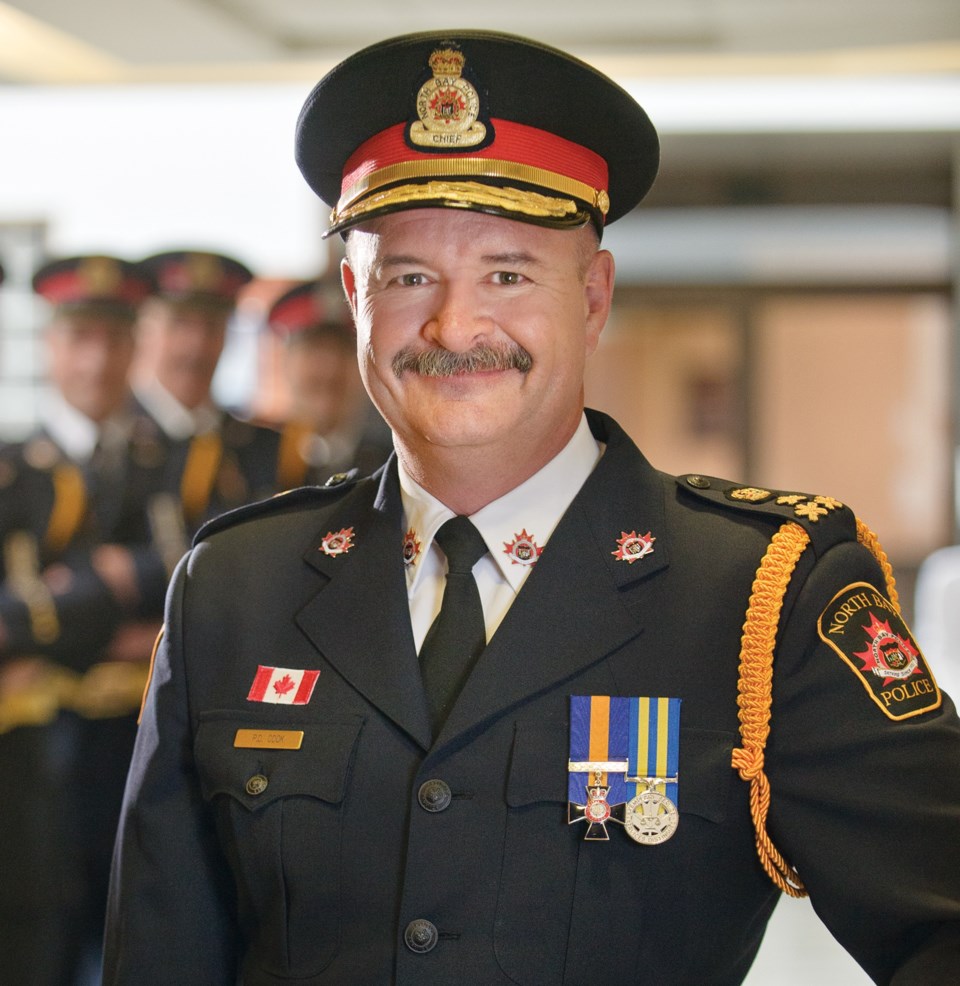The controversial issue is headline news after Prime Minister Justin Trudeau announced this weekend that former Toronto police chief Bill Blair will lead the government's efforts to legalize marijuana.
But North Bay Police Chief Paul Cook is opposed.
"This isn't a straight forward issue," Cook says bluntly. "I am concerned about the impact on public safety and health as it relates to decriminalization and legalization of marijuana. I don't support either."
Cook says evidence exists that marijuana use among youth has affected mental health.
"From a community safety perspective, marijuana is a drug that impairs a person's cognitive function, can cause delusional thoughts, and it certainly would negatively impact the ability to operate machinery or drive a motor vehicle."
As it stands now there is not an approved screening device to check for impairment by drugs, but the local police service does employ drug recognition experts.
"We have two of them in North Bay, but there has to be some evidence for an officer to put someone through the testing. It's not like we can make a demand, then take them up and have blood taken from them at the hospital. There's got to be some change to the laws that allow police to better deal with people that are impaired by drugs."
Cook, a former president of the Ontario Association of Chiefs of Police, also says there are all kinds of concerns with marijuana grow ops, especially the indoor ones.
"We've taken down a number of indoor grows in our community and there's fire hazards in relation to residential growing of marijuana, the issue of theft of electricity, and certainly security risks of individuals who would be targeted for theft if it becomes known they are growing marijuana, and there's always the element of organized crime in the growing and distributing."
And just because the conversation has started, the Chief warns it won't change the way police currently enforce drug laws.
"No certainly it doesn't," explained Cook. "We're certainly following what's going on, and I trust that Bill Blair will be reaching out to organizations such as the Canadian Association of Chiefs of Police and the Ontario Association of Chiefs of Police to get our input on this consultative process. But for the front line police officer I would say 'leave the political decision making to the politicians, you just do your job and as your chief of police I'll continue to support you'. So for them, their focus is enforcing the law as it currently stands."
Cook points out that although police organizations have never been supportive of decriminalization or legalization, they did come up with a position nationally that they'd like to see changes to the law that would allow officers to issue tickets for simple possession of 30 grams or under.
"To deal with that, it would be nice to have legislative changes so an officer can simply issue a ticket to somebody, similar to a red light violation or a liquor infraction, and deal with it that way as opposed to every time we now lay a simple possession charge, we have this backlog in our justice system already. So we have been advocating for changes in the way we deal with simple possession of marijuana."
Meanwhile, Cook feels his friend Bill Blair will have to look at a full spectrum of issues in order to shape the regulations to roll out what the Liberal government has promised to do, but at the same time have regulations that look at legitimate health and community safety concerns.
He welcomes Blair's appointment, calling him "well respected".
"I welcome the fact the federal government asked Bill to take on this role. He understand the importance of consultation with stakeholders and community partners."
Blair also got the endorsement of Premier Kathleen Wynne today and told reporters she is heartened that Blair is embracing her proposal to have cannabis sold through government-owned Liquor Control Board of Ontario outlets.
Blair is a rookie MP elected in the recent federal election. He says he has never personally smoked marijuana.
